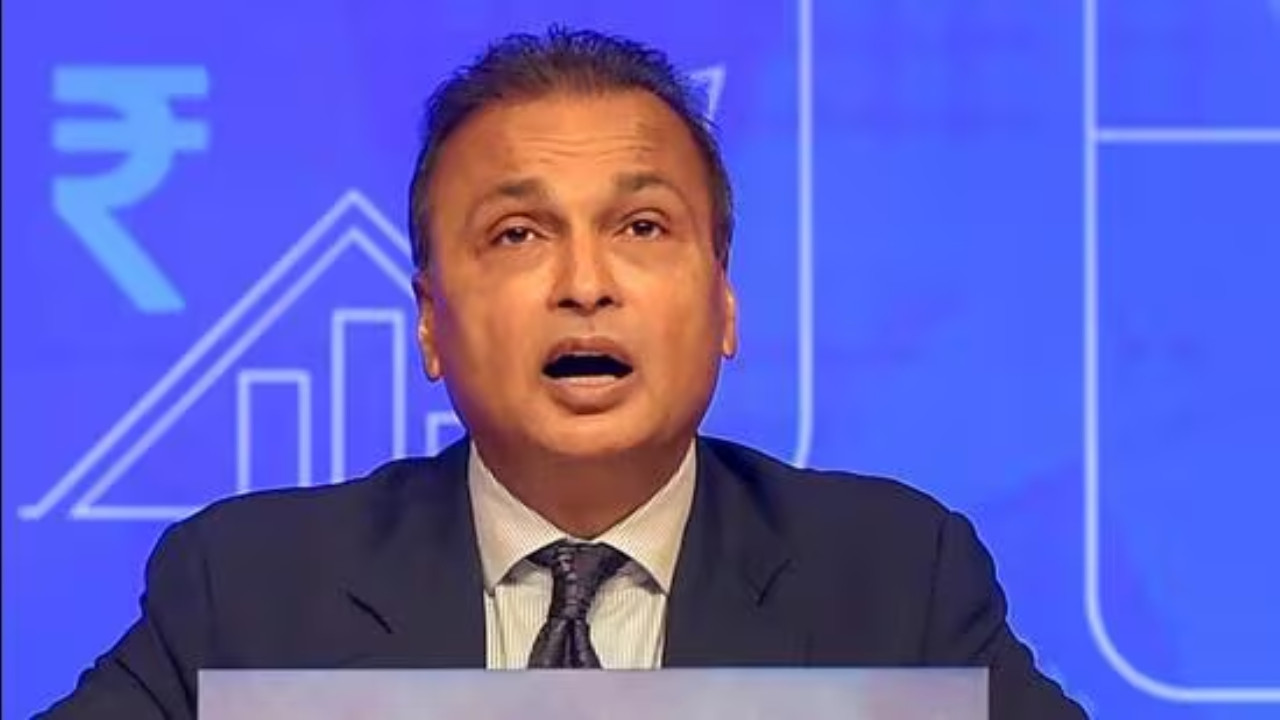
Anil Ambani Questioned by ED in ₹17,000 Crore Loan Fraud Probe (Image Source: PTI/File Photo)
Industrialist Anil Ambani on Tuesday appeared before the Enforcement Directorate (ED) inconnection with an alleged Rs 17,000 crore loan fraud scam. He was summoned to join the investigation on August 5, and accordingly, he reached the ED's office in New Delhi for questioning.
Officials said Ambani’s presence was required in a probe into suspected misuse of funds and possible violations under the Prevention of Money Laundering Act (PMLA). The agency is looking into the role of several people and companies, and Ambani’s statement is considered a key part of the investigation.
This is the first time that Anil Ambani has been questioned by the ED. His appearance comes nearly two weeks after the agency searched 35 locations linked to 50 companies and over 25 persons linked to a money laundering case against Reliance Anil Ambani Group (RAAGA) companies. The raids were carried out on July 24, after the Central Bureau of Investigation (CBI) filed a case that led the ED to begin a money laundering investigation.
According to officials, the ED's probe is based on inputs received from other bodies like the National Housing Bank, SEBI, the National Financial Reporting Authority (NFRA), and Bank of Baroda. On August 1, the agency also issued a Look Out Circular (LOC) against Anil Ambani, preventing him from leaving the country during the investigation.
Early findings by the ED suggest there was a carefully planned method to divert public funds, defraud banks, and mislead investors and institutions. The suspected involvement of Yes Bank’s promoters in accepting bribes is also being examined.
One major issue highlighted was the illegal diversion of about Rs 3,000 crore from Yes Bank between 2017 and 2019. ED found that Yes Bank promoters received funds in their personal accounts right before loans were approved. The agency is investigating how these bribes were linked to loan sanctions.
Officials also revealed serious violations in the bank’s internal processes. For example, some loan approval documents were backdated, and in many cases, loans were sanctioned without proper credit checks. These actions went against Yes Bank’s own lending rules.
The ED noted that loans were passed on to group and shell companies, breaking the conditions of the original approvals. Investigators flagged many issues—such as loans given to financially weak companies, lack of documents, common addresses and directors among borrowers, and money being passed around within the same group.
Officials are investigating why RHFL’s corporate loans more than doubled—from Rs 3,742 crore in 2017–18 to Rs 8,670 crore in 2018–19—within a single financial year. Reports indicate that several approvals were rushed or done irregularly.
Officials further claimed that Reliance Communications (RCom) committed loan fraud amounting to over Rs 14,000 crore. The State Bank of India (SBI) classified both the company and its promoter, Anil Ambani, as “fraudulent” under RBI rules and informed the central bank. SBI is now preparing to file a formal complaint with the CBI.
Canara Bank also faced a loss of more than Rs 1,050 crore due to alleged fraud by Reliance Communications. Investigators are also looking into foreign assets and undeclared bank accounts possibly linked to the case.
ED has found that Reliance Mutual Fund invested Rs 2,850 crore in Yes Bank’s AT-1 bonds, which were perpetual fixed deposits. This money, according to ED, was likely part of a deal involving mutual benefit for both parties. The bonds were eventually written off, meaning the money—belonging to the mutual fund’s investors—was lost. The CBI is also investigating this matter.
Based on details from SEBI, the ED said Reliance Infrastructure diverted a large portion of funds as Inter-Corporate Deposits (ICDs) to its group firms through a hidden company, referred to as “C Company.” This related-party transaction was not disclosed in company records, likely to bypass the legal requirements of shareholder and audit committee approvals.
Officials added that Reliance Infra agreed to a large settlement involving a total haircut of Rs 5,480 crore, with only Rs 4 crore received in cash. The rest—over Rs 6,499 crore—was settled through asset transfers and rights from discoms (power distribution companies), which have not been operational for years. Due to their inactivity, there’s almost no chance of recovering the money. The total suspected loan diversion in this matter alone exceeds Rs 10,000 crore.
In response to the allegations, Reliance Infrastructure stated that the case in question is over 10 years old. The company clarified that the exposure was around Rs 6,500 crore, as clearly disclosed in its financial reports for the past four years. On February 9, 2025, the company had publicly addressed the issue.
The company explained that it took legal steps to recover the dues, including mandatory mediation overseen by a retired Supreme Court judge. The final settlement was filed with the Bombay High Court and allowed Reliance Infra to recover the entire Rs 6,500 crore exposure.





Copyright © 2026 Top Indian News
